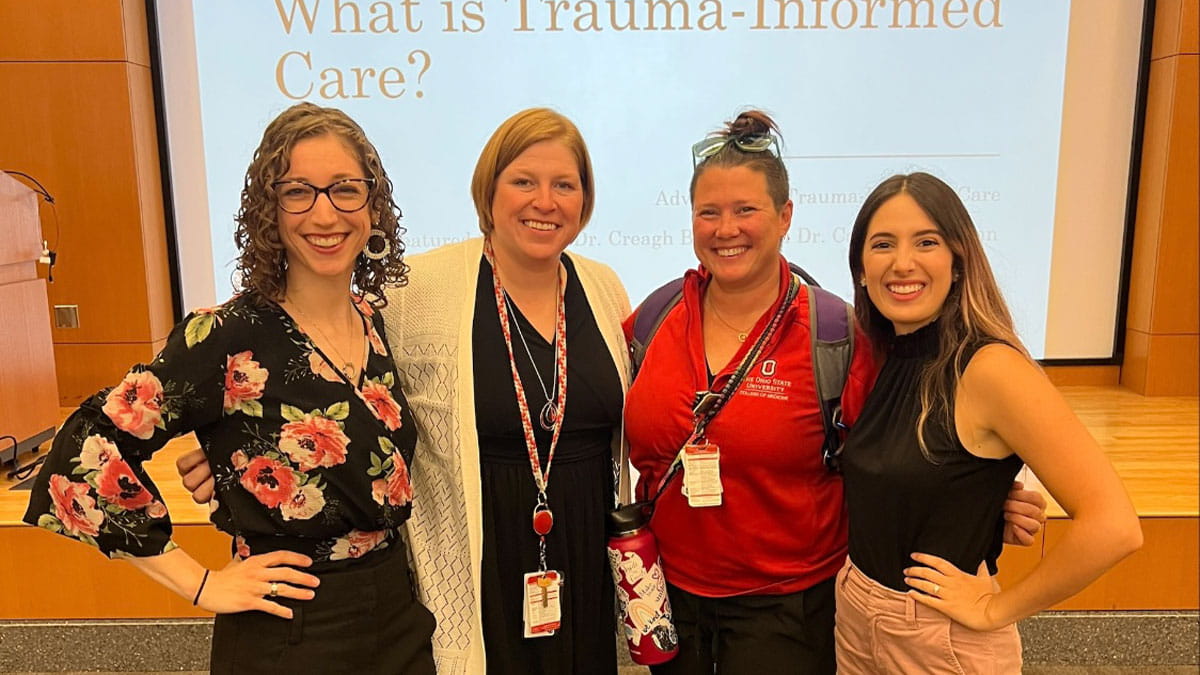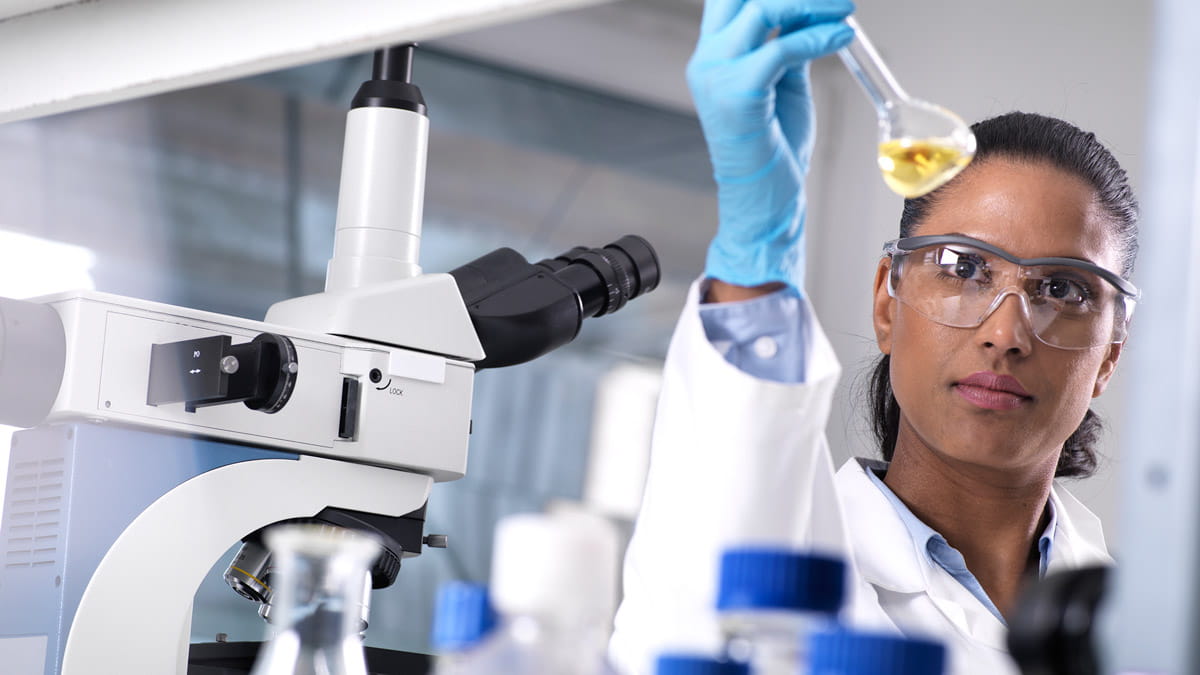Five medicine projects approved for Accelerator Awards funding
- Sylvester Black, MD, PhD, associate professor of Surgery, and Bryan Whitson, MD, PhD, professor of Surgery
- David Dean, PhD, associate professor of Engineering
- Zhiwei Hu, MD, PhD, associate professor of Surgery
- Michael Tweedle, PhD, professor of Radiology
- Kai Zhao, PhD, associate professor of Otolaryngology
The Accelerator Awards program provides grants of up to $150,000 to help develop technologies to the point that they are either ready to be licensed by an Ohio-based startup company or are determined to be unfeasible for commercialization. The program is funded by the Ohio Third Frontier Technology Validation and Startup Fund (TVSF) and The Ohio State University, and is administered through the Ohio State Corporate Engagement Office.
In the Ohio State Department of Surgery, Drs. Black and Whitson aim to reduce stress-induced organ-specific injury. Their team’s solution is a nanoparticle construct targeted to reduce stress and injury to the donor organ. This technology will improve donor organ quality or function as well as recipient outcomes. Accelerator Awards funding will allow optimization of the nanoparticle, scale up the manufacturing process and validate the technology in rodent and human organs.
Dr. Dean’s project, “Chaotic Printing for Cell Expansion and Tissue Regeneration,” focuses on a solution for the negative impacts of the current procedure for cell-based therapies. A solution is to use a chaotic bioreactor system fabricated using a novel method, chaotic printing. This new bioreactor will allow local, rapid and less-expensive expansion of cells to the numbers needed for treatment. Accelerator Awards funds will be used to finalize the design and set up a chaotic printed bioreactor, demonstrate the cell expansion capabilities of the device and validate its commercial viability.
Dr. Hu’s work in the Ohio State Department of Surgery will contribute to the treatment of advanced triple-negative breast cancer (TNBC). He is researching a technology whose outcomes would benefit the majority of TNBC patients, help prevent recurrences and have fewer side effects than current treatments. Accelerator Awards funds will be used to investigate the efficacy and safety of the technology in preclinical animal studies with the goal of commercializing for patients with TNBC.
In the Ohio State Department of Radiology, Dr. Tweedle’s project examines a platinum chemotherapy potentiator, which will make chemotherapy drugs more effective in late-stage cancer patients and allow patients to remain in therapeutic range. Accelerator Awards funds will be used to scale up the technology and determine therapeutic indices.
Dr. Zhao’s work in the Ohio State Department of Otolaryngology aims to relieve nasal obstruction, a chronic medical condition only resolved by invasive surgery. His project focuses on a novel nasal aid designed to relieve nasal obstruction symptoms and to be sold over the counter. The Accelerator Awards will fund work to improve prototype design and engage in rigorous clinical trials for FDA pre-marketing filing.



